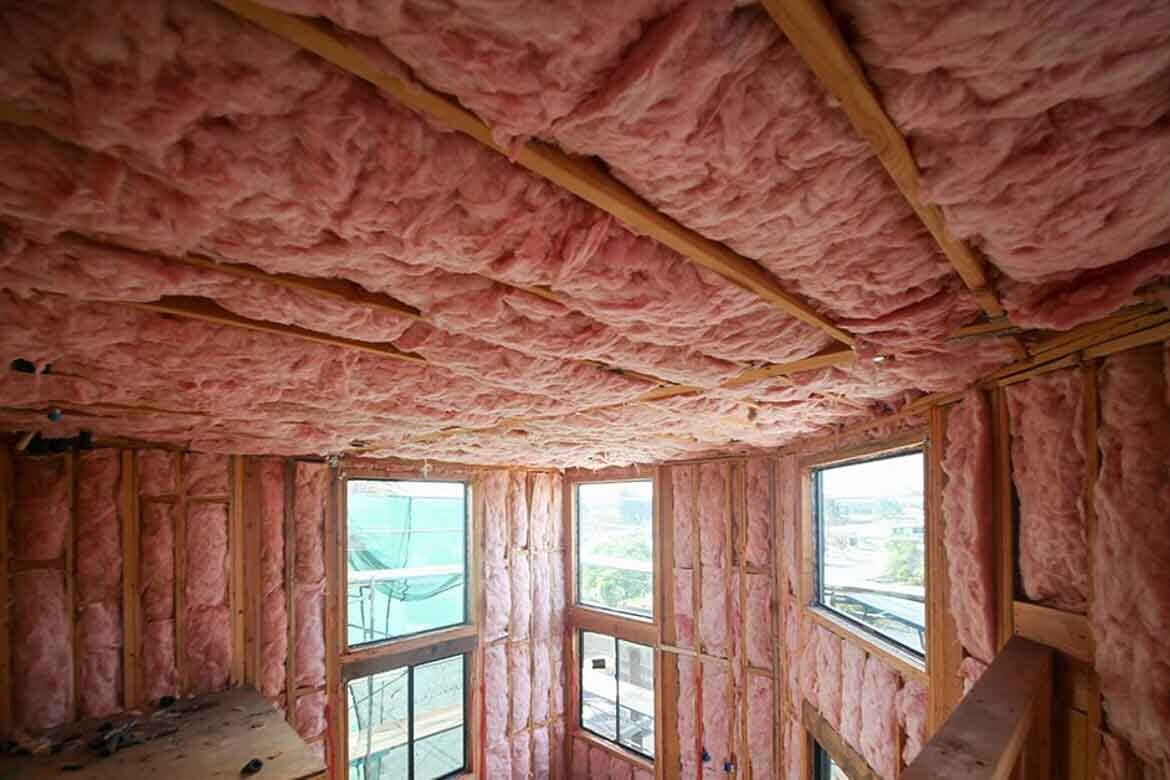What Is The Best Type Of Insulation For A House? 2024
Struggling to pick the best insulation for your home? It's important to choose wisely. The right insulation boosts energy efficiency, and comfort, and saves money. VB Insulation will help you find the perfect fit for your house.
This guide covers the top insulation choices and their perks. Whether you're building or upgrading, VB Insulation is your go-to expert. We aim to make your home more cozy and efficient.
Key Takeaways
- Understand the importance of home insulation for thermal performance, energy efficiency, and indoor air quality.
- Explore the different types of insulation materials, including fiberglass, cellulose, spray foam, and mineral wool.
- Learn about the factors to consider when selecting the best insulation for your home, such as R-value, cost, and installation methods.
- Discover the unique advantages and potential drawbacks of each insulation option to make an informed decision.
- Gain insights into the recommended R-values for your climate zone and how they impact your home's energy efficiency.
Understanding the Purpose of Home Insulation
Home insulation has many roles. It helps make your home comfortable and efficient. Our team at VB Insulation can help with thermal, sound, and moisture insulation needs.
Thermal Insulation and Energy Efficiency
Thermal insulation keeps your home's temperature steady. This cuts down on energy use and costs for heating and cooling. It's a smart way to invest in your home's comfort and save money.
Sound Insulation and Noise Reduction
Sound insulation is key for a quiet, peaceful place to live. It stops noise from inside and out, making your space quieter. You'll get to enjoy a more soothing atmosphere.
Moisture Resistance and Indoor Air Quality
Insulation can also keep moisture at bay. It stops condensation and keeps the air healthy inside. This protects your home against mold and mildew and keeps your space clean and comfy.
Evaluating Insulation Materials
Homeowners have many choices when it comes to insulation materials. Each has its unique benefits. At VB Insulation, we help you choose the best one for your home.
Fiberglass Insulation
Fiberglass insulation is a top pick for many. It's known for its great thermal abilities and is cost-effective. It's made of fine glass fibers that trap air very well. This traps heat from escaping. Because of this, it can help make your home more energy efficient. You may see lower utility bills because of it.
It's also easy to install, which is good for all sorts of homes. Whether you're building new or updating, fiberglass is a solid choice.
Cellulose Insulation
Cellulose insulation stands out for being eco-friendly. It's made from recycled newspaper and other cellulose items. Not only is it good for the planet, but it's great at reducing noise. This makes it perfect for quieter homes.
It also offers excellent thermal protection, keeping your home warm in winter and cool in summer. And because it doesn't cost a lot, it's a favorite among those who care about the environment.
Spray Foam Insulation: Benefits and Drawbacks
VB Insulation sees spray foam insulation as popular for good reasons. It is a great way to seal air, improving how your home holds heat. It also keeps moisture out, fighting off mold and mildew.
But, the way it's put in and the cost needs some thought. Putting in spray foam is more work and more costly at first. Homeowners should think about these points to see if it fits their home and budget.
Knowing the plus and minus of spray foam helps homeowners choose wisely. VB Insulation is here to guide you. We aim to help you get the right balance of warmth, savings, and moisture protection in your home.
Mineral Wool Insulation: A Versatile Option
Mineral wool, also called rock wool, is a winning choice for insulation in homes. It's praised by VB Insulation for its many benefits. These include great fire resistance and safety. Plus, it's superb at keeping homes quiet.
Fire Resistance and Safety
Mineral wool stands strong against fires. Its fibers are naturally resistant to flames. This is a big plus for keeping your house safe. If a fire starts, mineral wool slows it down. This gives time to get out safely or fight the fire.
It works best in areas that might catch fire easily, like attics and basements. Its fire-proof nature can be a lifesaver.
Soundproofing Properties
Mineral wool doesn’t just guard against fire. It’s also amazing at hushing up your home. Its dense build absorbs and stops noise from spreading. This makes it perfect for areas needing silence, like bedrooms and home offices.
Giving you a quieter space is not its only job. By keeping noise out, it makes your home cozier. Your living area becomes more peaceful and comfortable all around.
If you’re reworking your house or starting from scratch, think about mineral wool. It's a top-notch pick for keeping your place warm, safe, and quiet. This green material is your key to a better, more efficient home.
What Is The Best Type Of Insulation For A House
Finding the right insulation for your house depends on what needs insulating. VB Insulation knows each home is different. The best insulation varies, meeting your specific needs and choices.
Attic Insulation
Insulating the attic is vital for a cozy, energy-efficient home. It keeps warmth from escaping through the roof. This helps cut heating and cooling costs over time. VB Insulation's specialists can advise on materials like fiberglass, cellulose, or spray foam. They all aim to improve your home's comfort and energy savings.
Wall Insulation
Good wall insulation helps keep indoor temperatures steady and boosts energy efficiency. VB Insulation aids in choosing the right material, whether for a new or existing home. Materials like fiberglass, mineral wool, or rigid foam are explained. Better insulation means a more pleasant home with lower energy bills.
Basement and Crawl Space Insulation
Insulating the basement and crawl space guards your home against dampness and raises comfort. VB Insulation suggests choices such as closed-cell spray foam or rigid foam. This advice helps create a barrier against moisture. It also keeps these areas comfortable, often forgotten parts of the house.
Insulation R-Values and Their Importance
Your home's energy efficiency depends on the insulation's R-value. This number shows how well insulation resists heat flow. Knowing about R-values helps you pick the best insulation for your home.
Understanding R-Value Ratings
A higher R-value means the insulation is better at holding in heat. Insulation types like spray foam or rigid foam boards have high R-values. They keep your home warmer in the winter and cooler in the summer. This leads to less energy use and greater comfort all year. Choosing the right R-value for your area is key to making your home more energy efficient.
Recommended R-Values by Climate Zone
It's essential to match your insulation’s R-value with your climate. The Department of Energy sets guidelines based on where you live. They consider things like how hot or cold it gets, as well as the need for heating or cooling.
In colder areas, like the northern U.S., you need more insulation to keep the heat in. This could mean having R-49 or higher in the attic. For walls, you might need R-21 or above. But in warmer places down south, you won't need as much insulation. R-30 to R-38 in the attic and R-13 to R-19 in the walls might be enough. This keeps your home comfortable and saves you money on energy.
Consulting with professionals like VB Insulation is a smart move. They will help you figure out the right R-value for your home. By doing so, you can make sure your home is as energy-efficient as possible.
Cost Considerations and Installation Methods
When you choose insulation for your home, think about both the start-up cost and the gains over time. Prices can change based on what you pick. VB Insulation reminds you to look at how much you might save on energy and how comfy your home will be. It's wise to get pros to install it. This ensures it's used right and works its best.
Insulation Material Costs
Insulation comes in many types, from fiberglass to spray foam. Some, like fiberglass, might save you money upfront. Others, including mineral wool, could cost more at first. But remember, the money you save on energy bills and the extra comfort these bring make it a smart choice.
Professional Installation vs. DIY
Some may think doing the insulation themselves is a good idea. However, working with experts at VB Insulation is usually better. They have the skill and tools to do it just right. This can improve how well your insulation works and your home's energy use. Plus, they can help you avoid mistakes that might make the insulation work less well or be risky.
Conclusion
Choosing the best home insulation is crucial. It impacts energy efficiency, comfort, and costs. Homeowners need to know about different insulation materials. This way, they can pick what's right for their home and wallet. VB Insulation is here to help, offering top-notch insulation solutions and advice for home improvements.
Want to make your home warmer, save energy, or just more comfortable? VB Insulation has you covered. They offer the know-how and products to get the ideal insulation for your place. With the right insulation, you can save money over time and feel more at ease in your home.
Ready to boost your home's efficiency, coziness, and savings? Reach out to VB Insulation now. Their experts will help you pick the perfect insulation for your needs and budget.
FAQ
What are the main purposes of home insulation?
Home insulation helps in many ways. It keeps your home's temperature steady, saving on heating and cooling bills. It blocks out noise, making your home quieter. It stops moisture, keeping the air you breathe healthy.
What are the different types of insulation materials?
Insulation comes in several types: Fiberglass is common and works well to keep your home warm. Cellulose is eco-friendly and great at reducing sound. Spray foam is top for sealing air and keeping moisture out.
What are the benefits and drawbacks of spray foam insulation?
Spray foam keeps your home airtight, warm, and dry. But, it might be costly to install. Think about these points before choosing them.
What are the unique features of mineral wool insulation?
Mineral wool, like rock wool, stands out with: Its ability to resist fire, increasing your home's safety. Great at reducing noise, perfect for quiet living spaces.
What are the best types of insulation for different areas of a house?
Each part of your house might need a different insulation: Use attic insulation to keep your whole home warm. Wall insulation helps keep room temperatures stable. Insulate basements and crawl spaces against moisture for more comfort.
How do insulation R-values affect energy efficiency and performance?
The R-value shows how well insulation stops heat flow. Knowing your home's ideal R-values can make it more efficient and comfortable.
What are the cost considerations and installation methods for home insulation?
Think about the cost and how it's installed when choosing insulation: Different insulation types have varied costs upfront. DIY or pro install? Pros can make sure the insulation works as it should.



